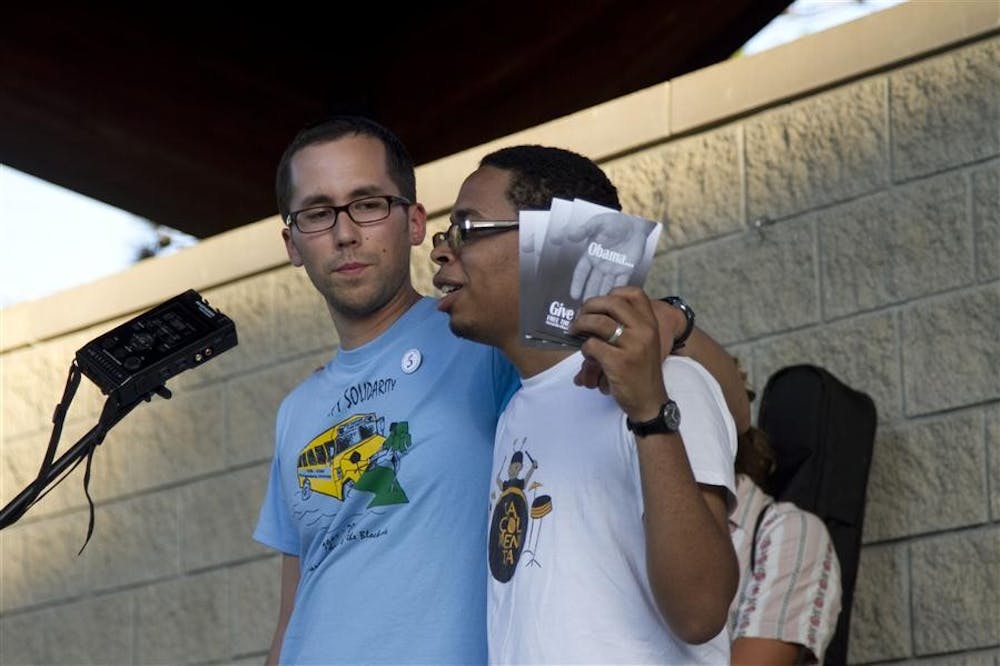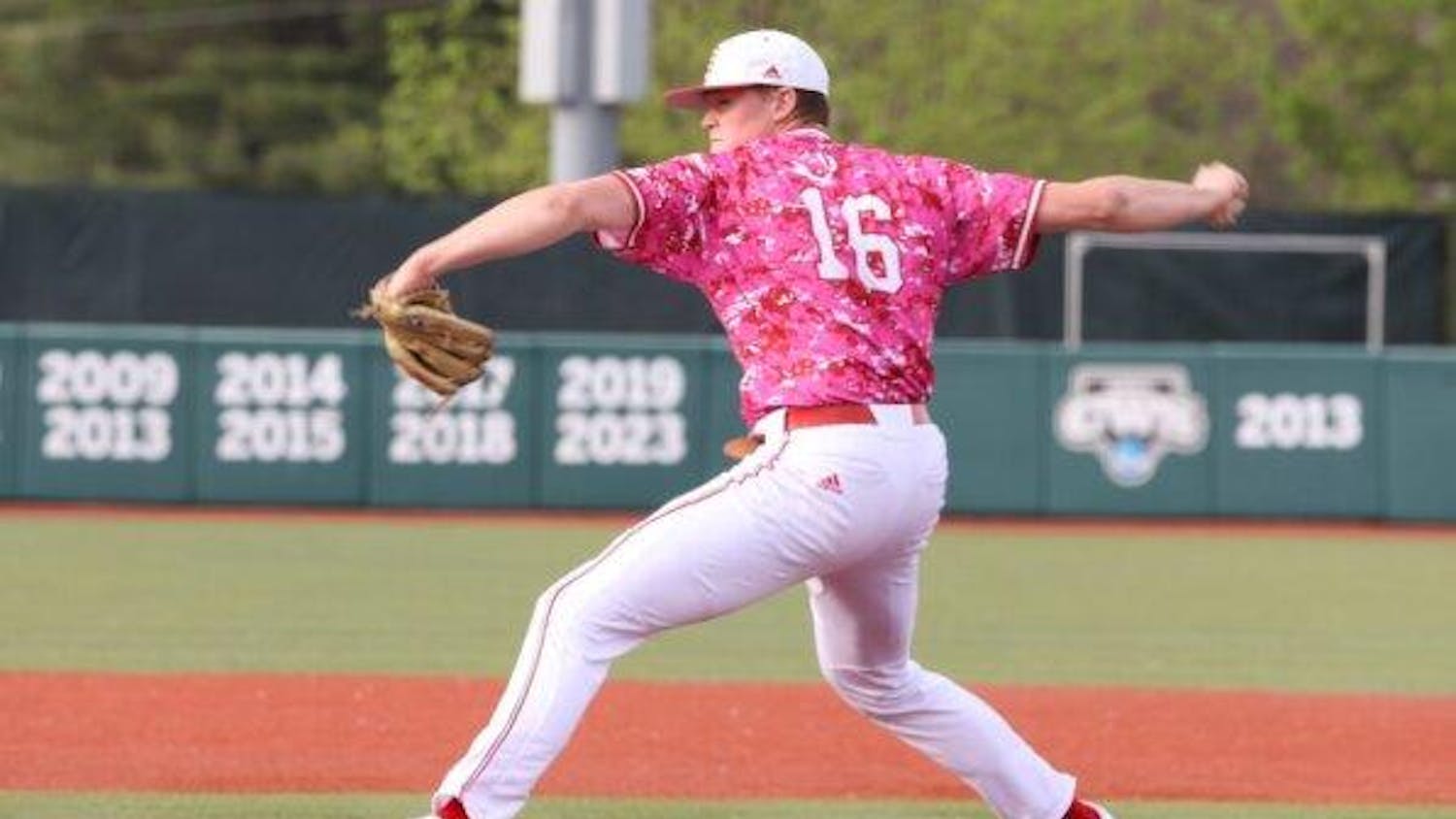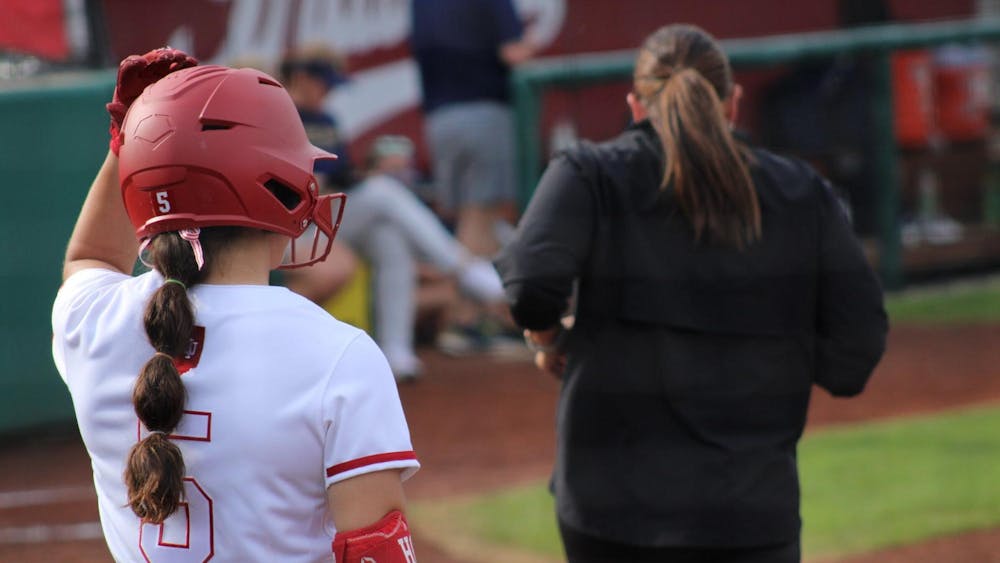After running into a roadblock with U.S. Customs officials at the Canadian border entering Washington State, “Caravanistas” from the Pastors for Peace Caravan stopped in Bloomington on Monday en route to Cuba.
In opposition to the U.S. trade embargo against Cuba, for 23 years Caravanistas have delivered humanitarian aid from the U.S. to the people of Cuba, despite the commercial, economic and financial block on Cuba imposed in 1960. The embargo, enacted during President John F. Kennedy’s administration, was an attempt to oust Cuban President Fidel Castro and his communist regime.
Pastors for Peace is a project of the Interreligious Foundation for Community Organization, which was founded by American church leaders and activists in 1967 to advocate the struggles of oppressed people for justice and self-determination.
Humanitarian aid, including medical and educational supplies and equipment, computers, bicycles, tools, sports equipment and vehicles, will be delivered to Cuban citizens at the end of the group’s journey.
“We collect about 100 tons of aides, everything from computers to medicine, school books, surgical equipment, simple things that Cubans cannot buy on the world market because most of them are made by the U.S.,” said Caravanista Manolo De Los Santos of New York City.
Caravanistas stopped at Bloomington’s Waldron, Hill and Buskirk Park, more commonly known as Third Street Park, to collect donations and spread the word about their cause. Getting this far was not easy, said Caravanista Aaron Mercredi of Vancouver, Canada. When entering the U.S., Mercredi said customs officials told the group it needed to purchase a bond of an undisclosed amount in order to bring the aid across the border, even though humanitarian aid is exempt from this requirement.
After a day-long struggle, Mercredi said customs officials allowed the aid to pass across the border.
But the largest challenge still lies ahead.
“There has been a history of conflict with the U.S. authorities, but there has also been a history of strong determination from everyone on the caravan to make sure the aid goes through,” Mercredi said. “However they can, they will try to create problems for people who are trying to stand with the people of Cuba.”
Beginning in different locations, more than 60 Caravanistas are traveling through 90 cities on their way to the small island country just 90 miles south of Florida. Each of the groups will meet in Texas, where they will challenge the Cuban embargo at the Mexican border. Similar to their entry into the U.S. from Canada, Mercredi said the group will refuse to license their aid.
“I believe that the blockade is unjust,” Bloomington resident Cynthia Roberts said. “Actually, I think it is ridiculous. I have been to Cuba, and there is nothing in Cuba that is a threat to the United States. I don’t understand what the whole point of this is, except to make the Cuban people suffer.”
Roberts is a member of CUBAmistad, an organization linking Bloomington with its sister city in Cuba, Santa Carla.
Inside Bloomington’s park, 19 Caravanistas and Bloomington residents gathered in solidarity with Cuba. One man wore a T-shirt that said, “Love is our license, end the U.S. blockade now.”
As the group huddled in a circle on the park’s stage, emitting a faint smell of incense, Mercredi spoke passionately into a voice recorder, asking for donations. People in the group passed around a straw hat, dropping small amounts of change inside.
After stopping in Bloomington, Caravanistas stayed the night, then continued their voyage toward the Mexican border — one step closer to Cuba.
“Think about the 11 million people in Cuba who struggle every day under the blockade,” Mercredi said. “But also remember, in the midst of all that suffering caused by the blockade, you see the Cubans smiling.”
Humanitarians to deliver supplies to Cuba

Get stories like this in your inbox
Subscribe





